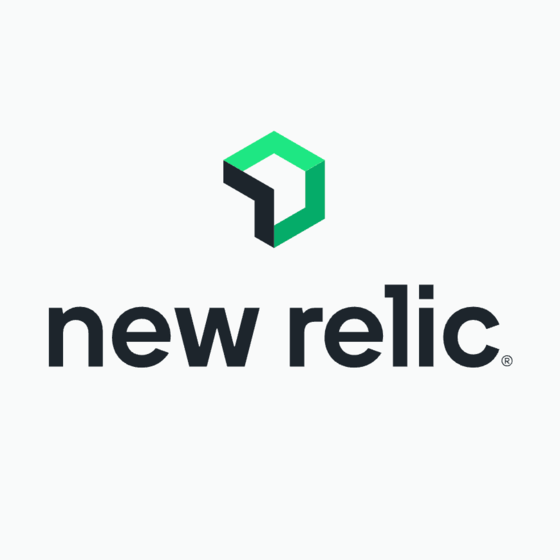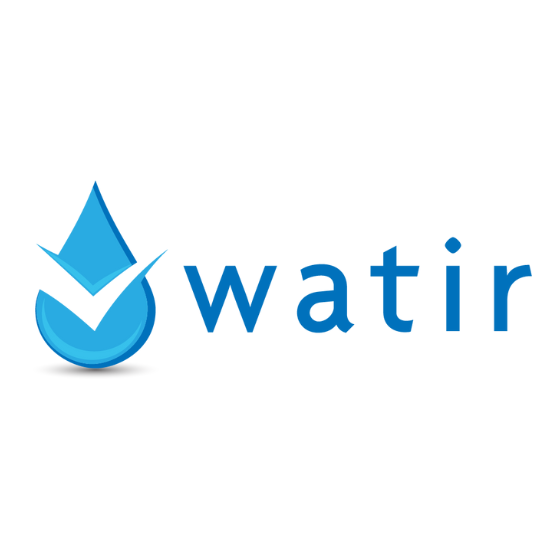10 Best Cloud Testing Tools Shortlist
Here's my pick of the 10 best software from the 20 tools reviewed.
Our one-on-one guidance will help you find the perfect fit.
Cloud testing gives your team the flexibility to run tests at scale without managing expensive infrastructure. But with so many tools available, choosing the right one can be time-consuming. You need a solution that fits your testing needs, integrates with your workflow, and keeps costs under control.
I test and review software independently, focusing on what matters most to CTOs in software testing. In this guide, I’ve shortlisted the best cloud testing tools available today. You’ll find insights on features, pricing, pros and cons, and how each tool fits different testing requirements.
Whether you’re looking for a tool to handle automated testing, cross-browser compatibility, or performance testing in the cloud, this list will help you make an informed decision.
Why Trust Our Software Reviews?
We’ve been testing and reviewing cloud testing tools since 2023. As IT and data specialists ourselves, we know how critical and difficult it is to make the right decision when selecting software.
We invest in deep research to help our audience make better software purchasing decisions. We’ve tested more than 2,000 tools for different IT use cases and written over 1,000 comprehensive software reviews. Learn how we stay transparent & our review methodology.
-

Docker
Visit WebsiteThis is an aggregated rating for this tool including ratings from Crozdesk users and ratings from other sites.4.6 -

Pulumi
Visit WebsiteThis is an aggregated rating for this tool including ratings from Crozdesk users and ratings from other sites.4.8 -

GitHub Actions
Visit Website
Overviews Of The 10 Best Cloud Testing Tools
Below are my detailed summaries of the best cloud testing tools that made it onto my shortlist. My reviews offer a detailed look at the key features, pros & cons, integrations, and ideal use cases of each tool to help you find the best one for you.
Reflect is all about simplifying automated web testing in the cloud. It’s built for teams that want to create reliable, end-to-end tests quickly—without writing a line of code. You interact with your app in a browser, and Reflect records your actions to build the test. It’s like having an AI-powered test engineer sitting beside you, translating your clicks into full test coverage.
Why I picked Reflect: A few things really stand out. First, the AI-generated test steps save a ton of time—you just describe what you want in plain language, and Reflect builds it. Second, the platform adapts automatically to UI changes, so you’re not constantly fixing broken selectors. And because it supports both UI and API testing in the same flow, you get a full picture of how your app behaves, front to back.
Reflect Standout Features & Integrations
Features include no-code test creation, visual regression detection, cross-browser execution, automatic test maintenance, real-time alerts, and video-based debugging. Tests run entirely in the cloud, with parallel execution across environments.
Integrations include Slack, GitHub, Jira, Jenkins, CircleCI, Bitbucket, Azure DevOps, Shopify, AWS, Marketo, and more.
Pros and cons
Pros:
- No-code test creation
- AI-powered test maintenance
- Comprehensive CI/CD integration
Cons:
- Limitations to mobile app testing
- Could offer more customization options for test configurations
Best for real-time performance insights for cloud-based applications and infrastructure
New Relic is all about application performance management and monitoring. It's a tool that's designed to help you keep an eye on your software and make sure everything's running smoothly. It's like having a 24/7 watchdog for your apps, making sure they're performing at their best and alerting you if anything goes wrong.
Why I picked New Relic: There are a few standout features that really make New Relic shine. First off, it's got real-time analytics. This means you can see exactly what's happening with your software, right as it's happening. It's also got an intuitive dashboard that makes it easy to understand your data. Plus, it's got a great alert system that lets you know if anything's going wrong, so you can fix it before it becomes a big problem.
New Relic Standout Features & Integrations
Features include backend monitoring, Kubernetes monitoring, mobile monitoring, model performance monitoring, infrastructure monitoring, log management, error tracking, network monitoring, vulnerability management, and browser monitoring.
Integrations include over 500 apps, such as AWS, Google Cloud, Microsoft Azure, Jenkins, CircleCI, Travis CI, Slack, PagerDuty, and other monitoring and analytics tools like Grafana, Datadog, and Splunk. It also has an API you can use to build custom integrations.
Pros and cons
Pros:
- Integrates seamlessly with popular dev tools
- AI-powered anomaly detection and intelligent alerting
- Wide range of monitoring capabilities
Cons:
- Added complexity from reliance on agents installed on application servers
- Bit of a learning curve
Testsigma is an open-source automation tool that provides QA teams and test engineers with the ability to customize tests for a variety of test profiles, whether they want to execute data-driven, regression, cross-browser, mobile, or continuous testing mechanisms.
Why I picked Testsigma: Although Testsigma works out of the box, it is highly configurable for a variety of end-to-end tests. It gives testers the flexibility of going code-agnostic, creating simple test scripts, or adopting AI-driven auto-pilot test maintenance.
Testsigma is ideal for development teams who are burdened with executing various test suites with a plethora of test scenarios. Testsigma’s SDKs and APIs help them to both customize and automate the process to meet their requirements.
Testsigma Standout Features and Integrations
Features include AI-driven test automations, cross-platform compatibility, cloud-based testing, continuous integration, reporting, multi-language support, and collaboration tools.
Integrations include Jenkins, Travis CI, CircleCI, Jira, Trello, BrowserStack, Sauce Labs, Scrum, Kanban, Appium, Selendroid, Postman, and Swagger.
Testsigma offers customized pricing upon request. Testsigma is free to use with some feature limitations.
Pros and cons
Pros:
- Open source, ease of use along with cross-platform compatibility.
- Flexible, with multiple programming language support.
- No coding experience is required to use Testsigma.
Cons:
- It still poses a challenge to automate complex tests.
- Some of its desired features aren’t included in the open-source version.
Watir is an open source library built on the Ruby programming language so that automated testing occurs the same way people interact with browsers. Incidentally, Watir is an acronym for “Web Testing Application in Ruby.”
Why I picked Watir: Watir allows test teams to write, create, and execute tests that are easy to read and maintain. This is because it operates differently than most HTTP-based test simulators, taking the browser through the OLE protocol.
Watir is ideal for those who need a simple and flexible tool with a light footprint to execute tests.
Watir Standout Features and Integrations
Features include cross-browser compatibility, object-oriented API, easy installation, flexible testing, dynamic web page interactions, and supports multiple web technologies.
Integrations include RSpec, Cucumber, Jenkins, Ruby, and Selenium.
Open source and free to use.
Pros and cons
Pros:
- Its in-built libraries facilitate test performance, screenshots, and other cool functionality.
- Open source, convenient, and easy to use.
- Multi-browser and multiple OS platform support.
Cons:
- It lacks real-time debugging functionality.
- Its in-built reporting needs to be enhanced.
Jenkins is a Java-based, open-source automation server used for continuous integration and continuous deployment (CI/CD) purposes. Jenkins allows DevOps to implement various stages of the software development lifecycle, especially those involving testing, building, and deployment.
Why I picked Jenkins: As part of the deployment pipeline, QA engineers typically use Jenkins to perform tests on code. However, Jenkins is self-contained and can be used to automate all sorts of development-aligned tasks, whether it involves delivery, deploying, building, or testing.
Jenkins can be installed on standalone machines with Java Runtime Environment (JRE). However, it can also be deployed on the cloud, with Cloud Native groups of collaborators and contributors working to improve its cloud-run environment, like offering architectural changes that optimize a stateless Jenkins.
Jenkins Standout Features & Integrations
Features include SCLC pipelines, task automations, workflow management, continuous integration and delivery (CI/CD), distributed builds, extensible, and open source.
Integrations include many software development and CI/CD tools like GitHub, GitLab, and BitBucket, including build tools such as Gradle and Maven. Additionally, they offer over 1,700 plugins to support different kinds of automation.
Jenkins is fully open-source and free to use.
Pros and cons
Pros:
- Abundant plugin support and version management.
- Jenkins saves a lot of operational time through automating its deployment process.
- Reduces test and deployment time.
- Excellent facilitator for DevOps operations.
Cons:
- It needs to be used on high performance servers.
- Single-server architecture limits resources to a single computer or virtual machine.
- It is very dependent on Java architecture.
Bitbar Cloud is a cloud-based mobile application testing platform that provides access to a wide range of real devices and emulators for testing and automation purposes.
Why I Picked BitBar Cloud: Bitbar Cloud is a cloud-based mobile application testing platform that offers users a number of benefits and features. One of the key strengths of Bitbar Cloud is its ability to provide access to a large pool of real devices. This allows users to test their applications on a wide range of devices and operating systems, ensuring compatibility and performance across different platforms.
Bitbar Cloud also includes advanced testing capabilities, such as parallel testing, automated testing, and performance testing. These features can help users optimize their applications and ensure that they perform well under different conditions.
BitBar Cloud Standout Features & Integrations
Features include real device testing, third-party integrations, scalability, customization, parallel testing, automated testing, performance testing, and automated reporting.
Integrations include Jenkins, Appium, Selenium, JUnit, TestNG, Android Studio, Xcode, and AWS Device Farm.
BitBar Cloud costs from $47/parallel/month and comes with a 14-day free trial.
Pros and cons
Pros:
- Easy integration with popular tools and technologies
- Customizable testing environments and configurations
- Access to a large pool of real devices for testing
Cons:
- More expensive than other testing solutions
- Learning curve for advanced testing capabilities
Spring Cloud Sleuth is a real-time distributed tracing tool for Spring Boot. It is a layer over a Tracer library named Brave and provides auto-configuration for enhanced logging. DevOps and QA testers can subsequently use these logs to trace requests.
Why I picked Cloud Sleuth: Cloud Sleuth makes it possible to trace the request propagation within microservices. Cloud Sleuth's most important use case is diagnosing cloud-based applications, which tend to be complex, especially since the advent of microservices. Microservices are notoriously difficult to test and debug. This is because one action by a user can trigger a cascade chain of downstream microservice calls.
It is ideal for identifying logs that pertain to a particular application request, thread, or job.
Cloud Sleuth Standout Features & Integrations
Features include distributed tracing, trace data reports, data visualizations, test controller, cloud resource monitoring, and multi-cloud support.
Integrations include Zipkin, Logback, SLF4J, Amazon Web Services (AWS), Microsoft Azure, Google Cloud Platform (GCP), GitLab, Jenkins, Elasticsearch, Splunk, MySQL, and MongoDB.
Spring Cloud Sleuth is free to use.
Pros and cons
Pros:
- Easy to identify where logs emanate from.
- Excellent for troubleshooting distributed applications.
- Can export trace data to Zipkin to provide tracing visualization.
Cons:
- Free platform means limited-to-none customer support
- Outdated UI
AWS Device Farm is a real-time application testing service that allows QA professionals to improve the quality of web and mobile apps. Device Farm allows you to do these without the hassles of managing or provisioning any infrastructure.
Why I picked AWS Device Farm: AWS Device Farm allows you to test on both real and physical devices, in addition to simulated environments and emulated devices, with almost the same level of effectiveness. To speed the execution of test suites, AWS Device Farm lets you simulate test scenarios with multiple browsers and devices and run concurrent tests on them.
You have the ability to use AWS Device Farm to test your scripts with its in-built frameworks, so you don’t have to maintain or even write test scripts. Additionally, employ automated tests that allow you to run tests, collect action logs, web driver logs, and video recordings, reproduce issues and fix problems faster—all in parallel.
AWS Device Farm Standout Features & Integrations
Features include protocol decoding, live capture, offline analysis:, deep packet inspection, display filters, and advanced analytics.
Integrations include tcpdump, TShark, libpcap, AirPcap, WinPcap, Snort, and Nmap.
AWS Device Farm pricing is divided between testing on mobile devices and testing on desktop browsers. The pricing for testing on a desktop browser is more straightforward, priced at a pay-as-you-go rate of $0.005 instance per minute.
With regard to testing on mobile devices, it provides three pricing tiers, namely: Pay as You Go ($0.17 device per minute), Private Devices (starts at $200 per month), and Unlimited Testing (starts at $250 per month).
Pros and cons
Pros:
- Easy testing with multiple devices.
- Productive integration with CI/CD pipelines.
- Convenient pay-as-you-go option.
Cons:
- The costs add up quickly if you use it substantially.
AppPerfect is a proprietary, fully automated performance, load, and stress test execution suite. It provides suites for various functionalities, such as load and web testing, including agentless monitoring and big-data analytics.
Why I picked AppPerfect: AppPerfect runs on operating system platforms like Windows, Linux, Solaris, UNIX-based systems, and macOS. It can simulate thousands of tests to test your application infrastructure realistically.
Its rich set of features is designed for both QA professionals and developers. It helps test teams identify issues and problems with a software application before it goes into production. However, no programming experience is required to use AppPerfect.
AppPerfect Standout Features & Integrations
Features include test management, automation, test & browser recording, agentless monitoring, and generated ready-made scripts.
Integrations include Jdeveloper, NetBeans, IntelliJ Idea, JBuilder, Salesforce, and Eclipse.
AppPerfect is free for unlimited use.
Pros and cons
Pros:
- Cross-platform support.
- GUI-enabled for smooth, user-friendly operations.
- All-time free usage.
Cons:
- Limited documentation provided.
- Limited third-party integrations.
Wireshark is an open-source package tool and analyzer for network vulnerability and penetration tests. It is called a packet sniffer due to its ability to act as a network monitoring tool.
Why I picked Wireshark: Wireshark helps both security specialists and testers obtain the precise picture of a network to troubleshoot issues effectively. Its network and telephony analysis runs on all the major OSs, including Windows, Linux, and macOS.
As one of the foremost network traffic capture tools, Wireshark helps to resolve the root cause of packet problems, such as where there’s a network depreciation and why packets are getting dropped.
Wireshark Standout Features & Integrations
Features include decryption support, color-coded schemes, protocol decoding, live capture, offline analysis, deep packet inspection, and display filters.
Integrations include third-party platforms such as Network Critical, Kali Linux, and EndaceProbes.
Wireshark is free and open source.
Pros and cons
Pros:
- Comes with powerful display filters.
- An open-source security tool that’s free to everyone.
- Provides offline analysis in addition to live capture.
Cons:
- You can’t alter or generate packets with Wireshark.
- It can’t be run outside a network since it doesn’t allow packet injection.
The Best Cloud Testing Tools Summary
| Tool | Best For | Trial Info | Price | ||
|---|---|---|---|---|---|
| 1 | Best for fast end-to-end test creation | 14-day free trial | From $212/month | Website | |
| 2 | Best for real-time performance insights for cloud-based applications and infrastructure | Free plan + demo available | Pricing upon request | Website | |
| 3 | Best highly-customizable, automation test tool | Free trial + free demo available | Pricing upon request | Website | |
| 4 | Best web-browser cloud automation tool for ruby libraries | Not available | Free To Use | Website | |
| 5 | Best CI/CD testing server | Free demo available | Free to use | Website | |
| 6 | Best mobile app testing platform to test on physical devices | 14-day free trial | Starts at $39/month | Website | |
| 7 | Best cloud distributed tracing tool | Not available | Free To Use | Website | |
| 8 | Best cloud testing service for multiple browsers and devices | Not available | From $0.17 device/minute | Website | |
| 9 | Best cloud testing tool for versatility | Not available | Free for unlimited use | Website | |
| 10 | Best network protocol analyzer testing tool | Not available | Free to use | Website |
Other Options
Here are a few more options that didn’t make the best cloud testing tools list:
- Nessus
Vulnerability management tool for the cloud
- BlazeMeter
Continuous cloud testing platform with open source compatibility
- SOASTA CloudTest
Cloud performance testing application
- Visual Studio App Center
Cloud mission control center for apps
- Tuskr
For flexible test management
- Tricentis Test Automation
For agile teams
- BugBug
Cloud testing tool for startups and software agencies
- Owlity
For autonomous test generation
- BrowserStack
Cloud-based platform for testing web applications, offering real device testing, automated and manual testing
- Kobiton
Cloud-based mobile app testing platform that provides real device testing and automated testing capabilities
Related IT Software Reviews
If you still haven't found what you're looking for here, check out these alternative tools that we've tested and evaluated.
- Network Monitoring Software
- Server Monitoring Software
- SD-Wan Solutions
- Infrastructure Monitoring Tools
- Packet Sniffer
- Application Monitoring Tools
Cloud Testing Tools Selection Criteria
When selecting the best cloud testing tools to include in this list, I considered common buyer needs and pain points like scalability for handling large test suites and integration with CI/CD pipelines for efficient automation. I also used the following framework to keep my evaluation structured and fair:
Core Functionality (25% of total score)
To be considered for inclusion in this list, each solution had to fulfill these common use cases:
- Run automated tests in cloud environments
- Support multiple browsers, devices, and operating systems
- Integrate with CI/CD pipelines
- Provide detailed test reporting and analytics
- Offer parallel test execution for faster results
Additional Standout Features (25% of total score)
To help further narrow down the competition, I also looked for unique features, such as:
- AI-driven test automation and self-healing tests
- Built-in load and performance testing capabilities
- Real-time debugging and test session recording
- Native support for containerized testing environments
- Codeless test automation options for non-technical users
Usability (10% of total score)
To get a sense of the usability of each system, I considered the following:
- Ease of setting up test environments
- Intuitive dashboard and reporting interface
- Clarity of test logs and debugging tools
- Accessibility for both developers and testers
- Performance speed and reliability during test execution
Onboarding (10% of total score)
To evaluate the onboarding experience for each platform, I considered the following:
- Availability of guided setup wizards and documentation
- Access to training videos, webinars, and tutorials
- Availability of interactive product tours and demos
- Ease of migrating existing test scripts and configurations
- Support for trial periods to test functionality before purchase
Customer Support (10% of total score)
To assess each software provider’s customer support services, I considered the following:
- Availability of 24/7 live chat or phone support
- Responsiveness of ticket-based support systems
- Presence of a knowledge base and troubleshooting guides
- Access to active community forums or developer support groups
- Availability of dedicated account managers for enterprise users
Value For Money (10% of total score)
To evaluate the value for money of each platform, I considered the following:
- Transparency of pricing and feature availability across plans
- Scalability of pricing based on team size and usage
- Inclusion of core features without requiring expensive add-ons
- Availability of flexible billing options (monthly vs. annual)
- Fairness of pricing compared to competitors with similar capabilities
Customer Reviews (10% of total score)
To get a sense of overall customer satisfaction, I considered the following when reading customer reviews:
Real-world use cases and success stories shared by users
Frequency of reported technical issues or bugs
Feedback on ease of use and onboarding experience
Common praise or complaints about customer support responsiveness
Overall stability and reliability of the platform
How to Choose Cloud Testing Tools
It’s easy to get bogged down in long feature lists and complex pricing structures. To help you stay focused as you work through your unique software selection process, here’s a checklist of factors to keep in mind:
| Factor | What to Consider |
|---|---|
| Scalability | Can the tool handle increasing test loads and multiple concurrent users? Look for solutions that support parallel test execution and distributed testing. |
| Integrations | Does it integrate with your CI/CD pipeline, version control systems, and DevOps tools? Seamless integration reduces friction in automated testing workflows. |
| Customizability | Can you tailor test cases, dashboards, and automation scripts to fit your needs? A tool with flexible scripting and configurations will better match your workflow. |
| Ease of Use | Is the platform easy to set up and navigate? Look for an intuitive UI, clear documentation, and minimal onboarding time for new users. |
| Budget | Does the pricing fit your testing needs and team size? Consider free trials, pay-as-you-go options, and any hidden costs for advanced features. |
| Security Safeguards | How does the tool protect sensitive test data? Check for encryption, access controls, and compliance with industry security standards. |
| Test Execution Speed | How quickly do tests run, and can the tool optimize execution times? Slow test execution can bottleneck your development cycle, so speed matters. |
| Reporting & Analytics | Does it offer clear, actionable test reports? Look for features like real-time logs, dashboard visualizations, and customizable reporting formats. |
Trends in Cloud Testing Tools
In my research, I sourced countless product updates, press releases, and release logs from different cloud testing tool vendors. Here are some of the emerging trends I’m keeping an eye on:
- AI-powered test generation: More tools are using AI to create and optimize test cases automatically. These systems analyze code changes and user behavior to suggest relevant test scenarios, reducing manual effort and improving test coverage. Platforms like Testim and Functionize are already integrating AI-driven testing into their workflows.
- Self-healing tests: Cloud testing tools are improving their ability to detect and fix broken test scripts automatically. Instead of requiring manual intervention when an element changes, these tools adjust locators dynamically to keep tests running. This reduces maintenance time and makes automation more reliable.
- Serverless testing environments: Some vendors now offer fully serverless cloud testing, allowing teams to spin up test environments on demand. This eliminates the need for managing dedicated test infrastructure and makes scaling easier. AWS Device Farm and LambdaTest are examples of platforms moving in this direction.
- Shift-left performance testing: More teams are running performance and load tests earlier in the development cycle rather than waiting until the end. Cloud-based testing tools now allow developers to integrate lightweight performance testing into CI/CD pipelines, helping them catch performance issues sooner.
- Increased focus on compliance testing: With stricter data privacy regulations, cloud testing platforms are adding compliance-focused testing features. Some tools now include built-in GDPR, HIPAA, and SOC 2 compliance checks, helping teams validate that their applications meet security and regulatory standards.
What Are Cloud Testing Tools?
Cloud testing tools are software solutions that allow teams to run and manage tests in cloud environments instead of relying on local infrastructure. Developers, QA engineers, and DevOps teams use these tools to test applications at scale, improve software quality, and catch bugs early. Parallel test execution, AI-powered test generation, and real-time reporting help with faster feedback loops, better test coverage, and efficient troubleshooting. These tools make it easier to run reliable, automated tests across different devices, browsers, and network conditions.
Features of Cloud Testing Tools
When selecting cloud testing tools, keep an eye out for the following key features:
- Parallel test execution: Runs multiple tests at the same time across different environments, reducing overall testing time.
- AI-powered test automation: Uses machine learning to create, optimize, and maintain test cases, reducing manual effort.
- Cross-browser and cross-device testing: Ensures applications work correctly across different browsers, operating systems, and mobile devices.
- Self-healing test scripts: Automatically adjusts test scripts when UI elements change, minimizing test failures and maintenance.
- Scalable test environments: Allows teams to quickly provision and manage test environments without physical infrastructure.
- Real-time test reporting: Provides instant feedback with logs, screenshots, and video recordings to help diagnose failures.
- Performance and load testing: Simulates high-traffic conditions to evaluate how applications perform under stress.
- Security and compliance testing: Checks for vulnerabilities and ensures applications meet data privacy and security standards.
- CI/CD integration: Connects with DevOps pipelines to automate testing at every stage of development.
- Geolocation testing: Tests applications from different geographic locations to validate functionality in various network conditions.
Benefits of Cloud Testing Tools
Implementing cloud testing tools provides several benefits for your team and your business. Here are a few you can look forward to:
- Faster test execution: Runs multiple tests in parallel across different environments, reducing testing time.
- Lower infrastructure costs: Eliminates the need for expensive on-premise testing environments by using cloud-based resources.
- Better test coverage: Supports testing across different browsers, devices, and operating systems to catch more issues.
- Easier scalability: Adjusts test environments on demand to match project needs without hardware limitations.
- Early bug detection: Integrates with CI/CD pipelines to catch defects sooner in the development cycle.
- Improved collaboration: Allows distributed teams to access, run, and review tests from anywhere.
- More reliable automation: Uses AI and self-healing scripts to reduce test flakiness and maintenance efforts.
Costs and Pricing of Cloud Testing Tools
Selecting cloud testing tools requires an understanding of the various pricing models and plans available. Costs vary based on features, team size, add-ons, and more. The table below summarizes common plans, their average prices, and typical features included in cloud testing tool solutions:
Plan Comparison Table for Cloud Testing Tools
| Plan Type | Average Price | Common Features |
|---|---|---|
| Free Plan | $0 | Limited test executions, basic reporting, single-user access, and community support. |
| Personal Plan | $10-$30/user/month | Increased test executions, parallel testing, multi-device support, and standard reporting. |
| Business Plan | $40-$100/user/month | Advanced test automation, integration with CI/CD tools, team collaboration features, and priority support. |
| Enterprise Plan | Custom Pricing | Unlimited test executions, dedicated account manager, compliance support, and advanced security features. |
FAQs
Here are some answers to common questions about cloud testing tools:
What challenges might you face when integrating cloud testing tools with existing systems?
Integrating cloud testing tools with your current systems and CI/CD pipelines can be complex, especially if you're working with legacy systems. It's essential to choose tools that offer seamless integration capabilities to minimize disruptions.
How do you ensure the security of your data during cloud testing?
Data security is a significant concern in cloud testing. To protect your data, ensure that your cloud testing provider complies with industry-standard security certifications and offers robust encryption methods. Additionally, establish clear data handling policies and access controls within your team.
What strategies can you use to monitor and report on cloud testing performance?
Monitoring and reporting are crucial for assessing the effectiveness of your cloud testing efforts. Utilize performance monitoring tools that integrate with your cloud testing environment to collect real-time data. Regularly analyze this data to identify bottlenecks and generate reports that inform stakeholders of testing outcomes.
How do you handle network dependencies during cloud testing?
Network dependencies can impact the reliability of cloud testing due to potential latency and connectivity issues. Design your tests to account for these variables by simulating different network conditions. Implement fallback mechanisms and ensure that your testing environment can handle network fluctuations gracefully.
What tools are commonly used for automating UI tests in a cloud environment?
Automating UI tests in the cloud can be achieved using tools like Selenium, which allows for browser-based automation, and Robot Framework, an open-source test automation framework. These tools enable you to create and execute tests across various browsers and platforms within your cloud infrastructure.
How can you ensure compatibility of your cloud-based application across different devices and platforms?
Ensuring compatibility involves testing your application on various devices and platforms. Utilize emulators and simulators to replicate different environments, and perform both manual and automated tests to identify and address compatibility issues. This approach helps in delivering a consistent user experience across all platforms.
What Next?
In conclusion, cloud testing is a valuable tool to have in your arsenal if you are in the software development industry. It can provide an effective and efficient solution for testing with minimal cost and effort. The 10 best cloud testing tools listed above offer great features and unique advantages depending on your needs. To get the most out of your cloud testing experience, it is important to understand the differences between each one and select the right fit for your project.
Sign up for the QA Lead newsletter to receive the latest insights from top thinkers in the niche.























